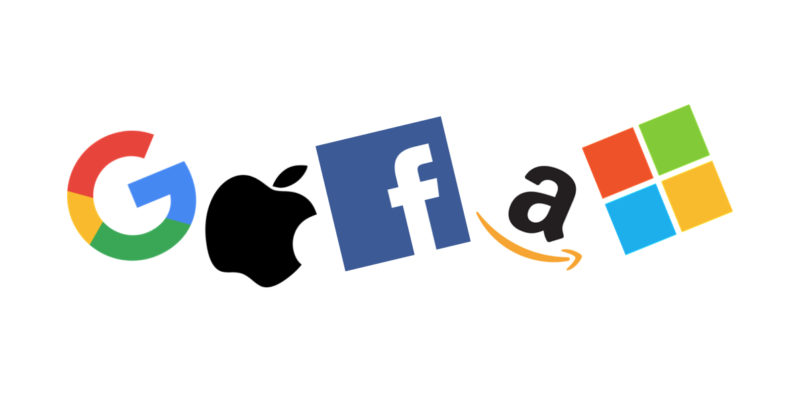Once a month, Mascaret (formerly Dentsu Consulting) and its partner ODOXA offer you a #Innovation Barometer to explore the general public’s relationship to the evolutions of this world. This month: GAFAM, a perception in trouble!
We share with you the “Eye of the Expert” section, in which Benjamin GRANGE details our analysis of #socialnetworks:
We no longer speak of “GAFAM”
Whether it’s about the “GAFAM” group or the associated mentions of these five large companies, the fact is that the category is less and less identified. Two key factors explain this dynamic. First, the multiplication of industry players that can be described as “Tech Giants”, which are making the news (Uber, Netflix, Twitter), American (Airbnb, Tesla) or not (Alibaba, Baidu, Tencent). In fact, it is becoming difficult to limit the problems created by these companies (personal data management, digital sovereignty, influence on public opinion, etc.) to GAFAM alone. Secondly, the new generation (led by “Gen Z”) no longer finds much meaning in this category, which is no longer in line with their use of social networks. They prefer Twitter, Tik-Tok or Instagram – which they differentiate from Facebook – and do not think of them as “companies” in the first place.
This outdated identification divides critics
As a consequence of this abandonment of the term, the small groups that speak loudest are gaining volume share. The less in tune opponents (personalities from the left as well as from the right) use it in their criticisms, but it is mainly the conspiracy groups that have reappropriated it. We find the classic elements of language, boosted by the anti-vax movement: the nebulous GAFAMs would have helped Bill Gates to introduce 5G in vaccines, etc. This mix of ideological genres is nevertheless a good reflection of mainstream criticism, which remains omnipresent and multi-partisan: risks of monopolies, foreign influence, power of private actors… The perception of the “Tech Giants” is getting worse overall, but if everyone agrees on the danger of the situation, few agree on the solution.
Find the whole survey below or on the Odoxa website.

